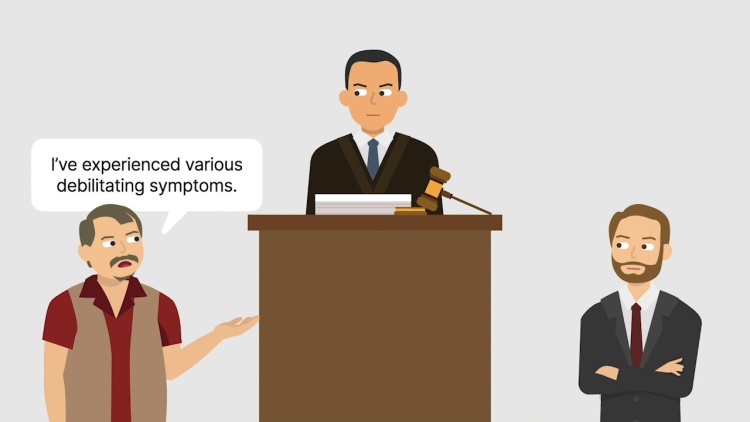Commonwealth v. Hutchins
Massachusetts Supreme Judicial Court
575 N.E.2d 741 (1991)
- Written by Samantha Arena, JD
Facts
Joseph Hutchins (defendant) was charged with possession of marijuana. Before trial, Hutchins filed a motion to dismiss the complaint, arguing a defense of medical necessity. Hutchins submitted affidavits, excerpts from his medical records, and literature on the medicinal uses of marijuana. Hutchins intended to prove that he had been diagnosed with scleroderma, a chronic disease that results in the buildup of scar tissue throughout the body. No effective treatment or cure for the disease existed, and Hutchins had experienced various debilitating symptoms as a result, including fatigue, nausea, vomiting, extreme pain while swallowing, and joint pain. Hutchins informed his treating physicians that he had somewhat successfully used marijuana to alleviate his symptoms. Two of Hutchins’s doctors expressed that marijuana use did appear to alleviate Hutchins’s symptoms, although the doctors did not say that marijuana fully treated the disease. The doctors also stated that a scientific investigation into the possible use of marijuana to treat scleroderma would be justified. Hutchins tried unsuccessfully to obtain either a marijuana prescription or permission to participate in a research study on the use of marijuana as a medical treatment. After evaluating the evidence, the trial court ruled that medical necessity was not a defense to Hutchins’s charge, and Hutchins was convicted. Hutchins appealed.
Rule of Law
Issue
Holding and Reasoning (O’Connor, J.)
Dissent (Liacos, J.)
What to do next…
Here's why 907,000 law students have relied on our case briefs:
- Written by law professors and practitioners, not other law students. 47,100 briefs, keyed to 996 casebooks. Top-notch customer support.
- The right amount of information, includes the facts, issues, rule of law, holding and reasoning, and any concurrences and dissents.
- Access in your classes, works on your mobile and tablet. Massive library of related video lessons and high quality multiple-choice questions.
- Easy to use, uniform format for every case brief. Written in plain English, not in legalese. Our briefs summarize and simplify; they don’t just repeat the court’s language.





